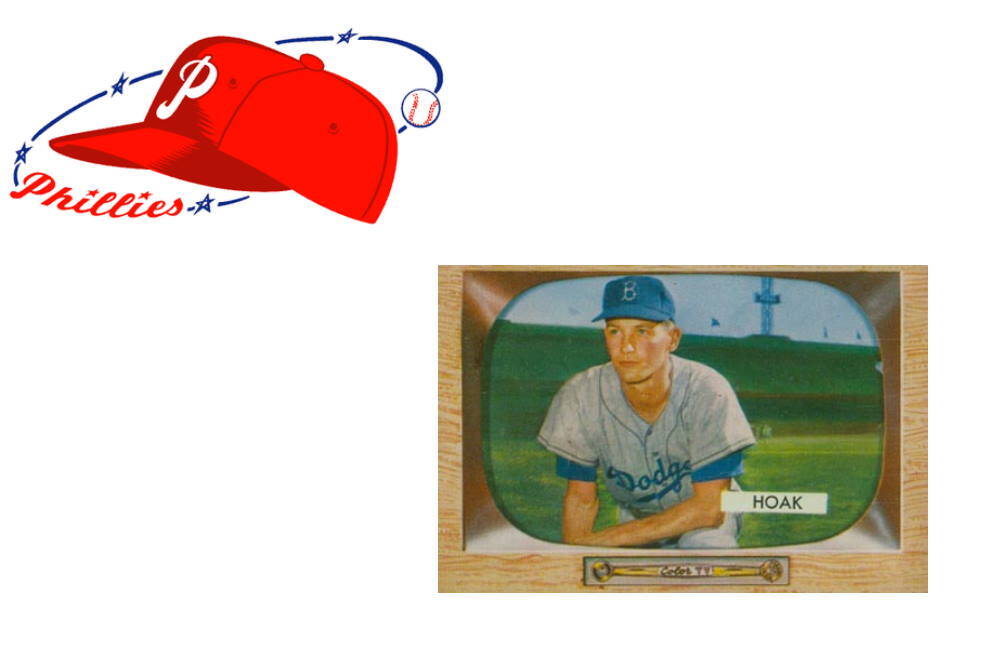Don Hoak does not have the eye-popping numbers or accolades of other players, but his hard work ethic and approach to the game earned him a legion of fans during his playing days between 1954 and 1964.
Hoak spent his Major League career playing for five different teams. He was part of the 1955 Brooklyn Dodgers team that beat the New York Yankees in the World Series. He also played on the 1960 Pittsburgh Pirates team that won the World Series by beating the Yankees in dramatic fashion, with a Game 7, 9th inning home run by Bill Mazeroski.
Don Hoak Early Life
Don Hoak was born on Feb. 5, 1928, in Roulette Township, Pennsylvania. He never talked much about his childhood, saying that “it would just hurt a lot of people.” But at the age of 17, before even finishing high school, he joined the Navy in the waning days of World War II. He was discharged in 1946.
Early Baseball Career
Sometime during his military service, Hoak decided he wanted to be a baseball player and after being discharged he began playing for the Brooklyn Dodgers’ minor-league affiliates. Slowly he climbed the rungs to the Major League, finally reaching the top in 1954.
Why Brooklyn Dodgers and New York Giants Moved
Major League Career
Hoak spent two seasons with the Brooklyn Dodgers. In 1955, they won the World Series against the Yankees. In Game 7, Hoak played third base in place of Jackie Robinson, who had been slightly injured. In 1956, however, he was traded to the Chicago Cubs.
Jackie Robinson Early Life & MLB Career
His performance with the Cubs was incredibly poor. He set a National League record by striking out six times in a 17-inning game against the New York Giants (the Giants won).
After that, the Cub traded him to the Cincinnati Reds (then called the Redlegs due to the Red Scare). That season, he made a controversial play that led to a rule change: He interfered with the ball while running from second base to third, leading to the rule that if a runner touched the ball, both the runner and the batter would be out.
However, he also turned out to be an amazing player, even being voted MVP for the Redlegs. Unfortunately, 1958 was not nearly as successful. Hoak spent most of the season plagued by injuries. In 1959, he was traded to the Pittsburgh Pirates, something that the Reds’ manager later regretted.
He performed excellently in the 1959 season. The Pirates’ broadcaster Bob Prince gave Don Hoak the nickname “Tiger.” In 1960, he helped the Pirates win the World Series (again against the Yankees) despite injuries and suffering a fever during the series.
After 1962, the Pirates decided to rebuild, so Hoak was traded to the Philadelphia Phillies. By this time age had taken its toll, and he finally fizzled out after 1964.
After Baseball
Hoak served as the color commentator for the Pirates for two seasons (1965 and 1966). After that he took various coaching jobs, hoping to work his way into the majors as a manager.
In 1969, the Pirates fired their manager, Larry Shephard. Hoak was hoping he would become the next manager. He was one of three possible candidates, but none of them were hired; instead, the Pirates chose former manager Danny Murtaugh, who had quit several years ago due to his waning health but now felt healthy enough to resume managing duties.
Less than two hours after learning this, Don Hoak was dead. He had tried to chase after someone who had stolen his brother-in-law’s car and suffered a heart attack. For decades afterward, his wife, the singer-actress Jill Corey, claimed that he had died of a broken heart because the Pirates hadn’t hired him as a manager.


I will always fondly remember the fiery Don Hoak, part of the best trade in Pittsburgh Pirates’ history. He was such an integral component of the famed 1960 Pirates team. -An Oklahoman Die Hard Pirates’ fan from 1957-1981